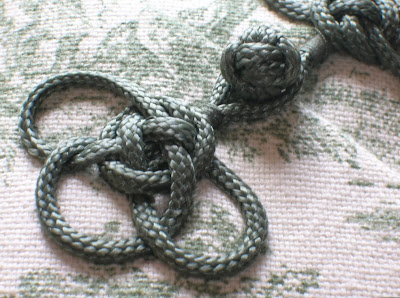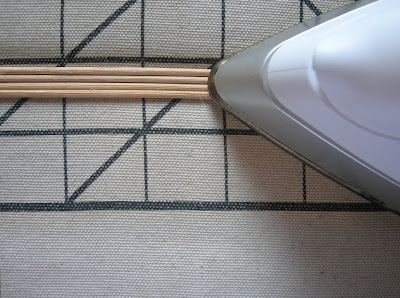Who am I kidding? A single reed down the center back is going to give, I don't really need to try the stays on the stays to find that out. So the binding that will run around the edges will also go along the center back, and I'll lay another reed in there to strengthen that edge. I placed the 1 inch bias trim along the edge on the face of the stays and stitched it down right against the reed in the center back channel.

Yep, the binding will all be sewn on by hand. I don't want to chance snapping reeds when wrestling the stays under the sewing machine needle. I thought I was using a back stitch, but realized I'm not. The diagram in my copy of The Complete Book of Embroidery and Embroidery Stitches, by Catherine Christopher, written in 1948, clearly shows the needle goes back into a spot it earlier came out of.

Oops. I think my stitch will still be strong enough though. Here are the stitches from the other side.

The reed will be laid in like this.

When I fold the bias over and stitch it down it should look like this.

The binding needs to cover every edge around the stays. I'm going to time how long it takes to do this. The first leg, starting at the bottom cornet of the center back and going just around the top corner, took about an hour and a half. Let's hope I pick up speed.

























